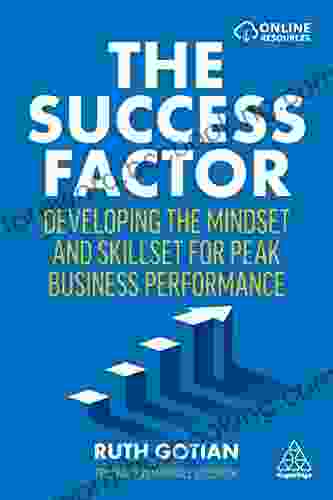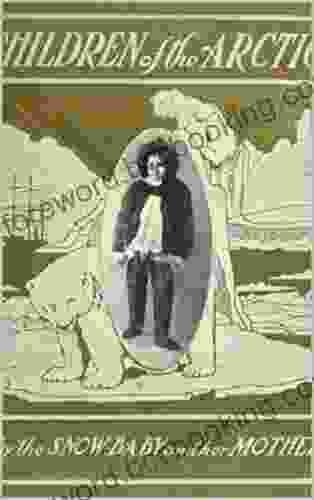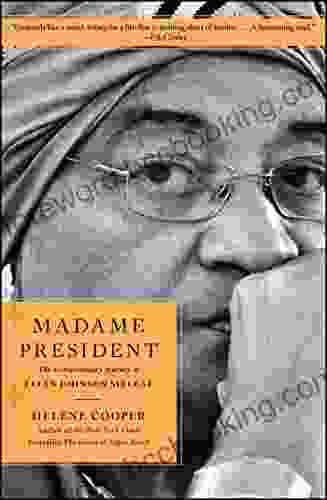Jazz and Racial Blackness in German Thought Between the Wars

A Comprehensive Examination of the Book by Martin P. Winkler

In the interwar period, Germany experienced a growing fascination with jazz, a vibrant and expressive musical form emanating from the African American community in the United States. This fascination, however, was deeply intertwined with complex racial and cultural dynamics, which Martin P. Winkler's groundbreaking book, Jazz and Racial Blackness in German Thought Between the Wars, expertly unravels.
5 out of 5
| Language | : | English |
| File size | : | 6332 KB |
| Text-to-Speech | : | Enabled |
| Screen Reader | : | Supported |
| Enhanced typesetting | : | Enabled |
| Print length | : | 226 pages |
Winkler's meticulous research and insightful analysis provide a comprehensive overview of how prominent German intellectuals, philosophers, and cultural critics engaged with jazz and its implications for understanding race, identity, and culture. Through a meticulous examination of a wide range of texts, from philosophical treatises to literary essays and musical reviews, the book uncovers the intricate ways in which jazz became a lens through which Germans grappled with fundamental questions about their own national identity and the nature of blackness.
One of the central themes explored in the book is the tension between primitivism and modernity. For some German thinkers, jazz represented a primitive and exotic force, embodying the untamed and irrational aspects of black culture. This view was often linked to racist tropes that depicted African Americans as inherently inferior and incapable of producing sophisticated art forms. Winkler deftly exposes the racist undertones of such primitivist discourse, demonstrating how it served to justify the exclusion of black people from German society.
In contrast to the primitivist perspective, other German intellectuals embraced jazz as a symbol of modernity and cultural progress. They saw in jazz an innovative and liberating force that challenged traditional norms and opened up new possibilities for artistic expression. Winkler highlights the writings of Theodor W. Adorno, one of the most influential philosophers of the time, who recognized jazz's potential to disrupt conventional notions of musical form and harmony. Adorno viewed jazz as a form of "anti-music" that could subvert the oppressive structures of bourgeois society.
The book also explores the ways in which jazz influenced German perceptions of black identity. Through their encounters with jazz musicians and their music, German intellectuals began to develop a more nuanced understanding of black culture and its complexities. Winkler shows how jazz served as a catalyst for challenging racial stereotypes and fostering a greater appreciation for the richness and diversity of African American life.
Winkler's work is not only a significant contribution to the history of jazz and German thought but also to broader discussions of race and representation in cultural history. Jazz and Racial Blackness in German Thought Between the Wars provides a fascinating and thought-provoking exploration of how music can both reflect and shape our understanding of race, culture, and identity.
Key Features of the Book:
- Comprehensive analysis of the interplay between jazz, race, and German philosophy in the interwar period
- Examination of a wide range of texts, including philosophical treatises, literary essays, and musical reviews
- Exposure of the racist undertones of primitivist discourse surrounding jazz
- Highlighting of the role of jazz as a symbol of modernity and cultural progress
- Exploration of the influence of jazz on German perceptions of black identity
- Significant contribution to the history of jazz, German thought, and broader discussions of race and representation
About the Author:
Martin P. Winkler is Professor of German and Comparative Literature at the University of California, Berkeley. His research focuses on the intersections of literature, music, and philosophy, with a particular emphasis on German and American culture. Winkler is the author of several books, including The Age of Goethe: Weimar Classicism and the Birth of Modernism and The Subversive Imagination: German Culture and the Crisis of Modernity.
:
Jazz and Racial Blackness in German Thought Between the Wars is a groundbreaking work that sheds new light on the complex and multifaceted relationship between jazz, race, and German intellectual life. Through its meticulous research and insightful analysis, the book offers a valuable contribution to our understanding of the interplay between music, culture, and identity. It is an essential read for anyone interested in jazz history, German intellectual history, or the broader study of race and representation in cultural history.
5 out of 5
| Language | : | English |
| File size | : | 6332 KB |
| Text-to-Speech | : | Enabled |
| Screen Reader | : | Supported |
| Enhanced typesetting | : | Enabled |
| Print length | : | 226 pages |
Do you want to contribute by writing guest posts on this blog?
Please contact us and send us a resume of previous articles that you have written.
 Book
Book Novel
Novel Page
Page Chapter
Chapter Text
Text Story
Story Genre
Genre Reader
Reader Library
Library Paperback
Paperback E-book
E-book Magazine
Magazine Newspaper
Newspaper Paragraph
Paragraph Sentence
Sentence Bookmark
Bookmark Shelf
Shelf Glossary
Glossary Bibliography
Bibliography Foreword
Foreword Preface
Preface Synopsis
Synopsis Annotation
Annotation Footnote
Footnote Manuscript
Manuscript Scroll
Scroll Codex
Codex Tome
Tome Bestseller
Bestseller Classics
Classics Library card
Library card Narrative
Narrative Biography
Biography Autobiography
Autobiography Memoir
Memoir Reference
Reference Encyclopedia
Encyclopedia Henry Nicholls
Henry Nicholls Harriet B Braiker
Harriet B Braiker Haylie Duff
Haylie Duff Jane Monroe Donovan
Jane Monroe Donovan Harley Ford Hodges
Harley Ford Hodges Heidi Kolsto
Heidi Kolsto Tani Hanes
Tani Hanes Jonathon Keats
Jonathon Keats Michael Moss
Michael Moss Hillel Halkin
Hillel Halkin Helene Hadsell
Helene Hadsell Jeanine Cornillot
Jeanine Cornillot Hezekiah Butterworth
Hezekiah Butterworth Harry Markopolos
Harry Markopolos Harnarayan Singh
Harnarayan Singh Rowan Blanchard
Rowan Blanchard Philip Garrison
Philip Garrison Herb Brewer
Herb Brewer Henry Zeybel
Henry Zeybel Howard Axelrod
Howard Axelrod
Light bulbAdvertise smarter! Our strategic ad space ensures maximum exposure. Reserve your spot today!

 Clark BellUnveiling the Storied Past: A Comprehensive Exploration of "Brief History of...
Clark BellUnveiling the Storied Past: A Comprehensive Exploration of "Brief History of...
 Colton CarterUnlock the Magic of Fairy Parties: Dive into Simple Scrumptious Recipes Fairy...
Colton CarterUnlock the Magic of Fairy Parties: Dive into Simple Scrumptious Recipes Fairy... Shawn ReedFollow ·12.7k
Shawn ReedFollow ·12.7k Leon FosterFollow ·17.1k
Leon FosterFollow ·17.1k Logan CoxFollow ·19k
Logan CoxFollow ·19k Ernest J. GainesFollow ·12.2k
Ernest J. GainesFollow ·12.2k Jake CarterFollow ·7.6k
Jake CarterFollow ·7.6k Joel MitchellFollow ·9.5k
Joel MitchellFollow ·9.5k E.E. CummingsFollow ·18.6k
E.E. CummingsFollow ·18.6k Dakota PowellFollow ·4.7k
Dakota PowellFollow ·4.7k

 Fabian Mitchell
Fabian MitchellUnleash the Adventure: Family Fun in the Black Hills
Nestled amidst the rolling hills...

 Alfred Ross
Alfred RossUnleashing Peak Business Performance: A Journey of...
In today's rapidly evolving business...

 Fernando Bell
Fernando BellEmbrace the Prophetic Voice of Howard Zinn: A Journey...
As we navigate the complexities of our...

 Jonathan Franzen
Jonathan FranzenChildren of the Arctic: A Literary Expedition to the...
In the annals of...

 Branson Carter
Branson CarterYou Can Be Neutral on a Moving Train: A Transformative...
Welcome, dear reader,...
5 out of 5
| Language | : | English |
| File size | : | 6332 KB |
| Text-to-Speech | : | Enabled |
| Screen Reader | : | Supported |
| Enhanced typesetting | : | Enabled |
| Print length | : | 226 pages |










